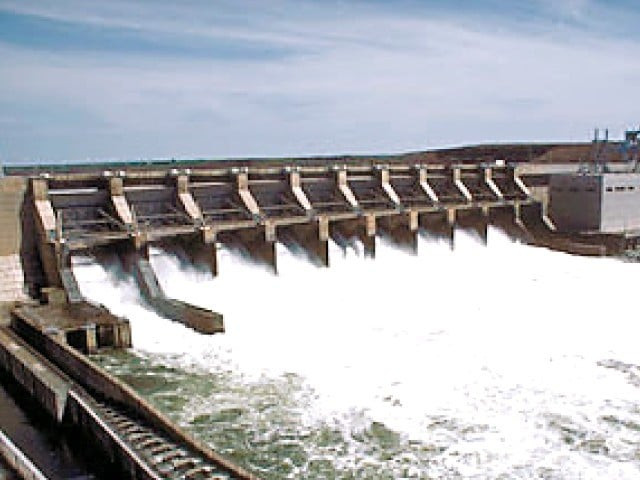Hydropower share to rise in energy mix
WAPDA chief says work on Diamer-Bhasha dam picking up pace

The share of hydroelectric power would gradually increase in the total energy mix, which would reduce the cost of doing business and facilitate growth of business activities, said Water and Power Development Authority (Wapda) Chairman Lieutenant General (Retd) Muzammil Hussain.
During a meeting with a delegation of the Islamabad Chamber of Commerce and Industry (ICCI), headed by ICCI President Muhammad Ahmed Waheed, Hussain spoke about dams and water reservoir projects being constructed by the authority in the country.
He said construction activities on the strategically important Diamer-Bhasha dam were picking up pace and the project would provide over 16,000 jobs for engineers and local people, leading to poverty alleviation and socio-economic uplift in the project area.
The Wapda chairman pointed out that Diamer-Bhasha dam was at the highest point compared to other such dams around the world with huge water storage capacity of 8.1 million acre feet (MAF) and power generation capacity of 4,500 megawatts.
He emphasised that the dam was a vital project for water, food and energy security of Pakistan and would go a long way towards stabilising the economy. “This dam will produce low-cost energy that will boost industrial and agricultural productivity in the country.”
He also talked about other under-construction hydroelectric power projects including Keyal Khawar, Dasu and Khurram Tangi.
Hussain said Mohmand dam, Bunji dam and Tarbela 5th extension project were also ready for construction and all these dams would be instrumental in generating cheap hydroelectric power in the country.
Speaking on the occasion, the ICCI president appreciated Wapda for gaining stable rating, terming it a great achievement.
He also lauded efforts of Wapda for initiating vital projects for water storage and hydroelectric power generation in various parts of the country.
“Pakistan was mostly relying on thermal power due to which energy cost was quite high in the country,” Waheed said and suggested that the country should focus on hydroelectric power and renewable energy sources to produce cheap energy that would reduce production cost and boost business activities.
Published in The Express Tribune, September 22nd, 2020.
Like Business on Facebook, follow @TribuneBiz on Twitter to stay informed and join in the conversation.



















COMMENTS
Comments are moderated and generally will be posted if they are on-topic and not abusive.
For more information, please see our Comments FAQ